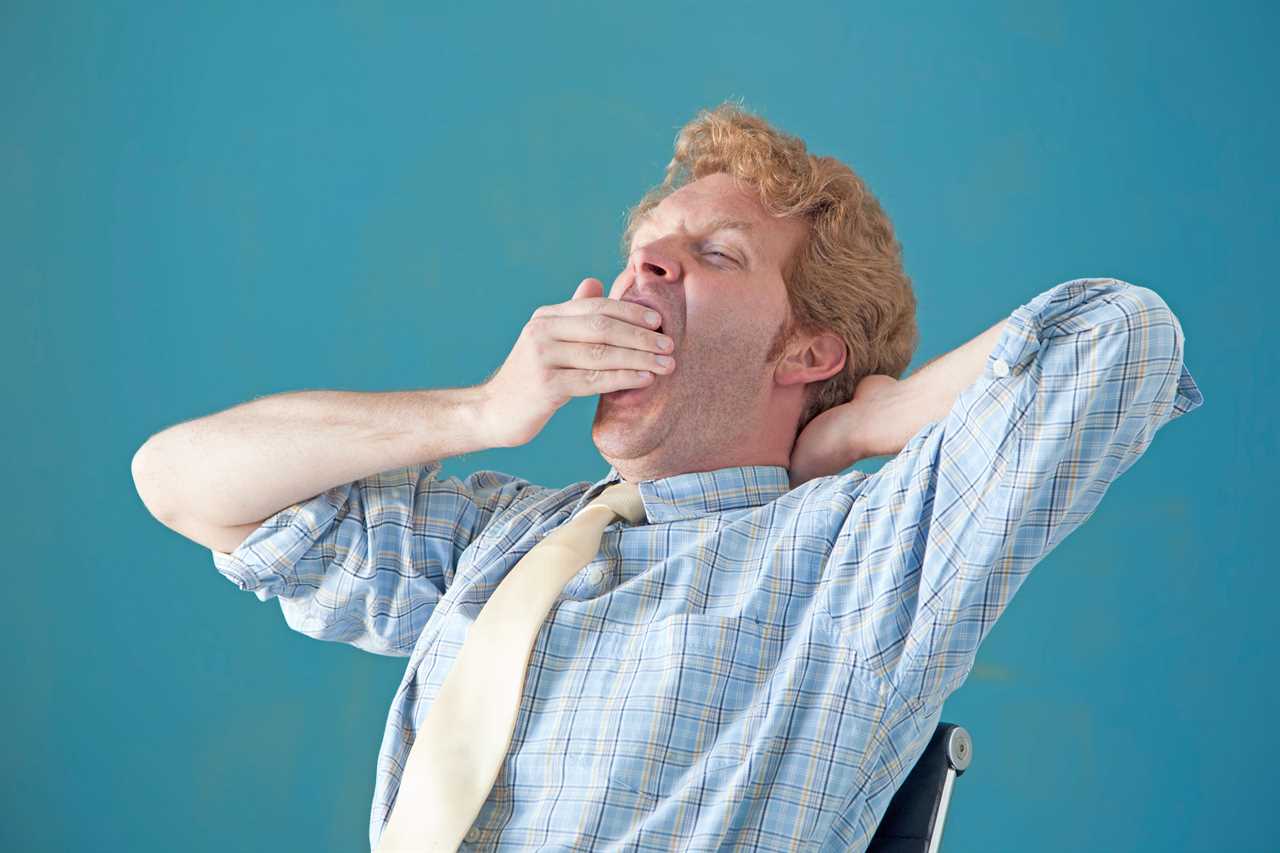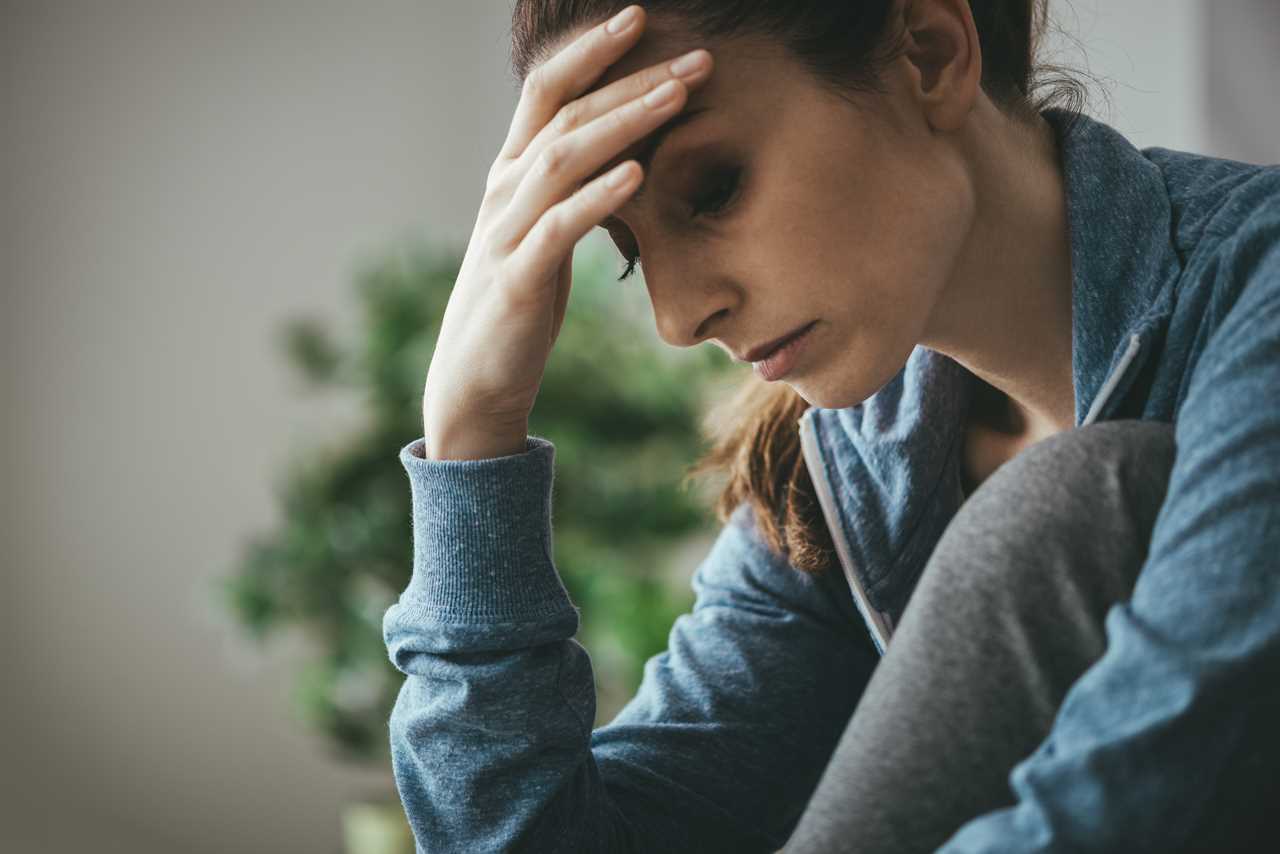THE most common symptoms of long Covid are starting to emerge almost a year into the pandemic.
Sleep difficulties, such as insomnia, and fatigue are two of the frequently reported lasting effects of having coronavirus disease.

Muscle pain and persistent lack of smell or taste are also plaguing previously infected people, studies have shown.
But scientists are still baffled over the type of person to suffer long Covid, which appears to strike without a pattern.
Even the young, fit and healthy have complained of symptoms so debilitating they cannot carry out every day tasks, such as walking up the stairs.
It’s also not clear how many people are battling long Covid, but estimates suggest one in five who have the disease can’t shake it for several weeks.
Dozens of long Covid symptoms – ranging from hair loss to hallucinations – have been identified by anecdotal evidence.
And with the help of scientific research, the following symptoms have been flagged time and time again as being the most prevalent weeks, or even months, after illness.
Fatigue and muscle pain
The most recent study on long Covid, published in the Lancet on January 8, found that the most common symptom to persist is fatigue or muscle weakness, in 63 per cent of patients.
The study was of 1,733 people, with a median age of 57, who were discharged from Jinyintan Hospital in Wuhan between January 7 and May 29 last year.
Fatigue – a feeling of extreme tiredness – is also a main feature of Covid-19 illness itself.

Research from the Office for National Statistics (ONS) also shows that 11.5 per cent of people with Covid infection were still suffering fatigue five weeks later.
The North Bristol NHS Trust’s Discover project, which is studying the longer-term effects of coronavirus in British hospital patients, also found “excessive fatigue” was the most common.
Some 39 per cent of the 163 study participants experienced this, according to its pre-print paper.
A further 23 per cent complained of muscle pain, which is medically called “myalgia”.
Sleep difficulties
Sleep difficulties were reported by more than on in four (26 per cent) of the patients from Wuhan.
And 24 per cent of patients in the Discover project said they were suffering “insomnia”.
But insomnia – which can also be triggered by stress, alcohol, caffeine and shift work to name a few – was very rarely reported in the period of Covid illness.
It was the only “new” symptom that emerged. The rest – such as persistent cough, high temperature and headaches – were reported both during the patients’ hospital stay and at follow up.
During March many people also reported that they were experiencing insomnia due to the stress caused by the pandemic.
Hair loss
The Wuhan hospital study reported that 22 per cent of those who were seriously unwell with Covid saw their hair fall out.
Similarly, an online survey of 1,500 people on the Survivor Corp Facebook group, for sufferers of long Covid, found 27 pre cent had some form of hair loss since their illness.
Telogen effluvium (TE) is when a person temporarily experiences hair loss and is usually the result of stress, and so is difficult to say whether it is a direct result of the virus.
Loss of taste and smell
Loss of taste and smell is one of the earliest signs of the coronavirus, and is on the official NHS list of of symptoms.
But it appears around one in ten will not get their senses back immediately after they recover.
The Discover project found 12 per cent still cannot smell 12 weeks after hospital discharge, while 11 per cent were reported by the patients in China.
An Italian study of only mildly unwell Covid cases, published in the journal JAMA, found 10 per cent of people do not see their taste or smell recover within one month.
And the ONS reported 8.2 per cent still had no sense of taste and 7.9 per cent a loss of smell after 12 weeks.
Mental health problems
Anxiety or depression was reported among 23 per cent of the patients in the Wuhan-based study.
Meanwhile, a study in the UK found people who had Covid-19 were much more likely to develop a psychiatric disorder.

The study, published in the Lancet, said nearly one in five people who catch the virus are diagnosed with anxiety, depression or other psychiatric disorders within three months.
One in 16 of coronavirus survivors were diagnosed with a mental illness for the first time — the rest suffered a relapse.
Doctors have cautioned some mental health problems could be down to lockdowns, as opposed to the virus itself.
Studies have found mental health has been impacted in a short period of time on an unprecedented scale due to financial worries, uncertainty, and loneliness.
How many are affected?
It’s difficult to say how many people have long Covid, partly because testing has not been able to confirm all of those who believe they had the disease.
The Jinyintan Hospital study found more than three quarters of coronavirus patients had at least one ongoing symptom six months after initially becoming unwell.
But this is only those who have serious illness.
It chimes with the North Bristol NHS Trust’s Discover project, which also found 74 per cent of patients had at least one persistent symptom after twelve weeks.
Research from the ONS shows that one in five people with Covid-19 develop longer term symptoms.
These numbers come from the ONS national infection survey, in which random households in England have been repeatedly swabbed for months.
It does not include people in hospital, care homes or prisons, and so gives a clearer picture on those who have only mild disease.
The ONS said overall, around 186,000 people in private households in England in the week beginning November 22 were living with Covid-19 symptoms that had persisted for between five and 12 weeks.






